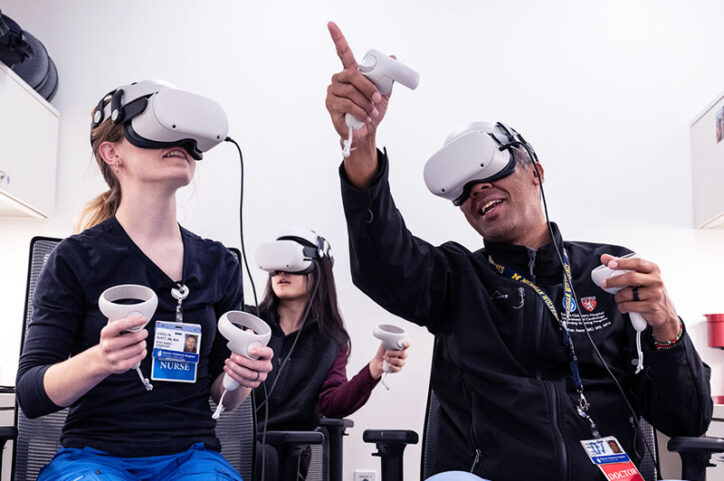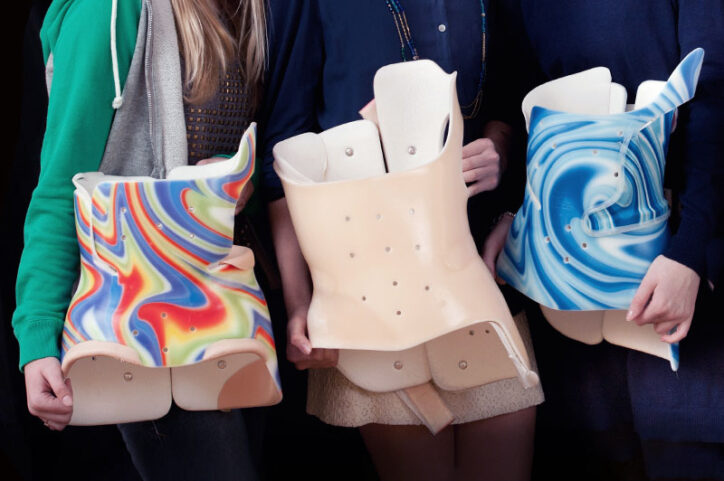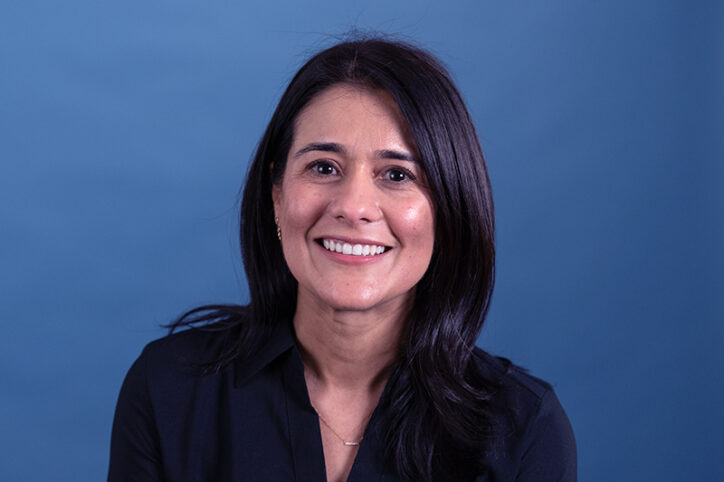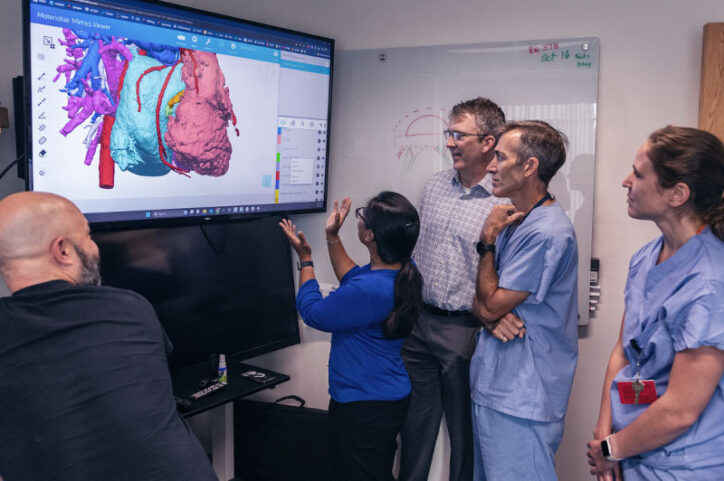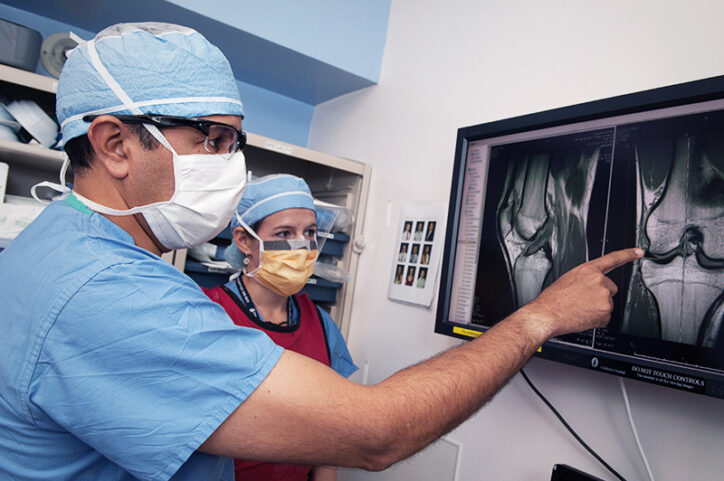Helping aspiring clinicians understand a virtual heart before they work with a real one
Jonathan Awori, MD, MS, MFA, isn’t embarrassed to say it took him a long time to completely understand the intricate workings of the heart. He says he isn’t alone; many aspiring doctors and nurses don’t immediately grasp the heart’s complexity from two-dimensional textbooks or even 3D-printed models. Now that he’s a pediatric cardiology fellow at ... Read More about Helping aspiring clinicians understand a virtual heart before they work with a real one
Predicting brace adherence could change the game in scoliosis treatment
When it comes to preventing scoliosis progression, is it possible to make bracing more effective? For decades, spine specialists focused on improving the braces themselves, making them lighter, less obtrusive, and easier to put on and take off. (The Boston Brace, developed at Boston Children’s Hospital in the early 1970s, is one example.) Key takeaways ... Read More about Predicting brace adherence could change the game in scoliosis treatment
New hospital discharge practices could improve health of infants with bronchopulmonary dysplasia
The chronic lung disease bronchopulmonary dysplasia (BPD) affects a significant number of infants who were born early and have underdeveloped lungs. They typically require lengthy specialized care in a neonatal intensive care unit (NICU) before they can go home with their families. But getting home doesn’t mean health risks are behind them. Their parents are suddenly their ... Read More about New hospital discharge practices could improve health of infants with bronchopulmonary dysplasia
Could ADHD be diagnosed genetically?
Despite it being very common, ADHD is often missed until a child reaches age 7 or older. By that time, they have likely been struggling socially and in school. Could early genetic testing be part of the solution? Anne Arnett, PhD, in partnership with Ryan Doan, PhD, at Boston Children’s Hospital, set out to see ... Read More about Could ADHD be diagnosed genetically?
Finding a treatment option for tear duct obstruction that works for children
Congenital tear duct obstruction (a blocked tear duct) is the most common cause of excessive tearing in infants and young children. Fortunately, most children require minimal treatment, but those with persistent symptoms can have a procedure to clear the blockage either in a clinician’s office without anesthesia or in a surgical setting with anesthesia. Few ... Read More about Finding a treatment option for tear duct obstruction that works for children
Toddlers diagnosed with autism should be reevaluated over time
Parents whose child has been diagnosed with autism spectrum disorder (ASD) may feel it’s a lifelong label. But a new study offers hope: It found that 37 percent of children diagnosed as toddlers no longer met criteria for autism when they reached early school age. Findings were published October 2 in JAMA Pediatrics. Study leader ... Read More about Toddlers diagnosed with autism should be reevaluated over time
Does cannabis affect surgical outcomes? We need more data.
After alcohol, marijuana is the most commonly used recreational substance among U.S. adults and adolescents. Up to 22 million Americans 12 or older use cannabis. In a 2022 survey by the National Institute on Drug Abuse, 0.7 percent of 8th graders, 2.1 percent of 10th graders, and 6.3 percent of 12th graders reported using marijuana ... Read More about Does cannabis affect surgical outcomes? We need more data.
A global take on rare disease research: Maya Chopra, MBBS, FRACP
Several years ago, while working as a clinical geneticist at the Imagine Institute of Genetic Diseases in Paris, Dr. Maya Chopra saw a child with unexplained intellectual disability, a cleft palate, distinctive facial features, and an inability to speak. Through a genetic analysis, she and her colleagues identified a rare variant in one copy of ... Read More about A global take on rare disease research: Maya Chopra, MBBS, FRACP
From aerospace to the OR: 3D modeling improves surgical planning by revealing details of patients’ hearts
One of the most important tools for complex heart surgeries at Boston Children’s isn’t even in the operating room. For years, heart surgeons couldn’t see the complete extent of a patient’s condition until a procedure started, forcing them to rely on experience, diagnostic imaging, and other information to plan surgery. Now, 3D modeling allows them ... Read More about From aerospace to the OR: 3D modeling improves surgical planning by revealing details of patients’ hearts
Uncertainty surrounds ACL treatment decisions in young athletes. It shouldn’t.
It’s an injury once seen mainly in adults, yet it’s become increasingly common in younger patients. From 2000 to 2020, the number of anterior cruciate ligament (ACL) tears in children and adolescents increased between three- and five-fold. For young athletes, an ACL tear spells six to nine months of downtime, heightened risk for secondary ACL ... Read More about Uncertainty surrounds ACL treatment decisions in young athletes. It shouldn’t.


